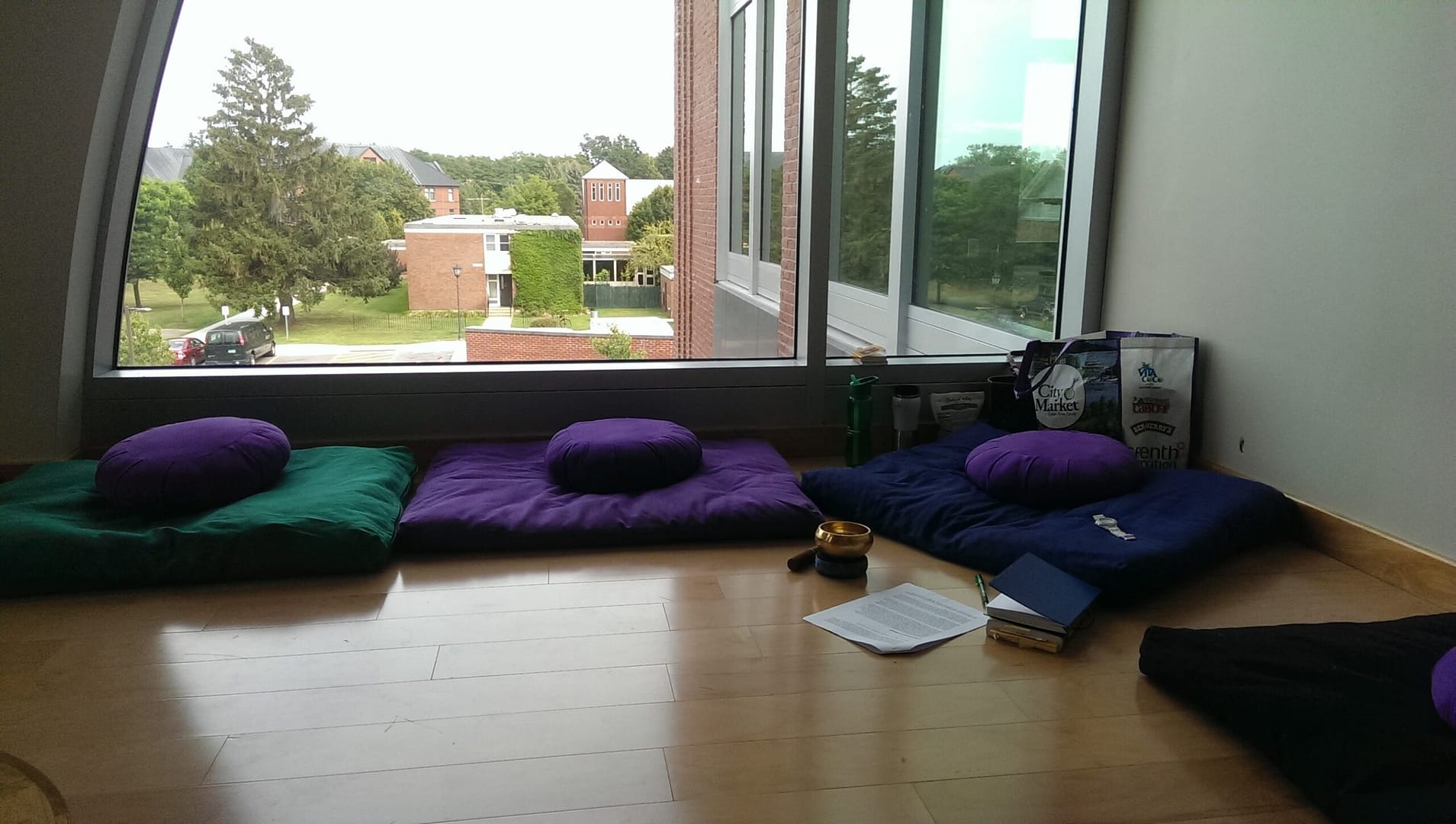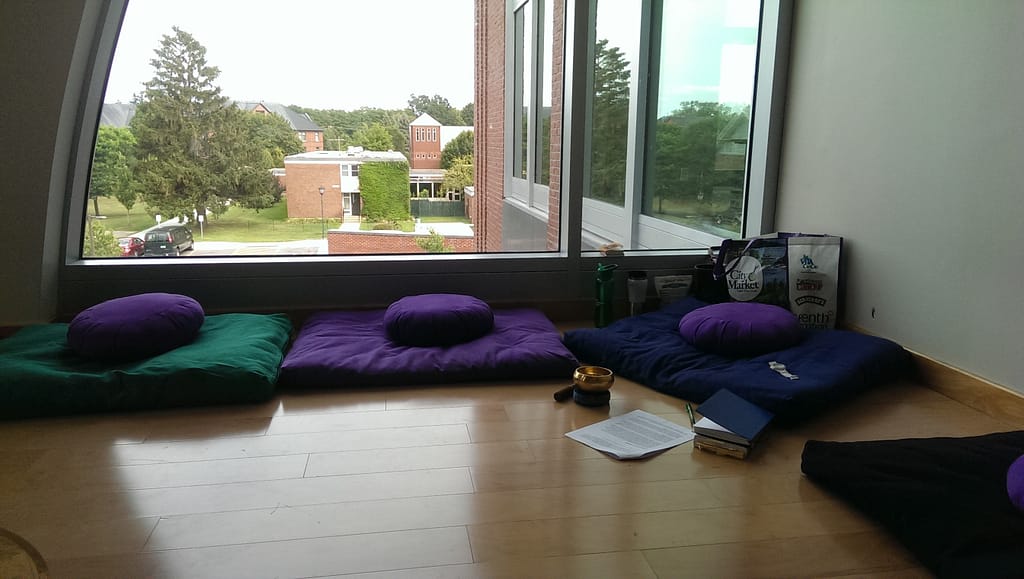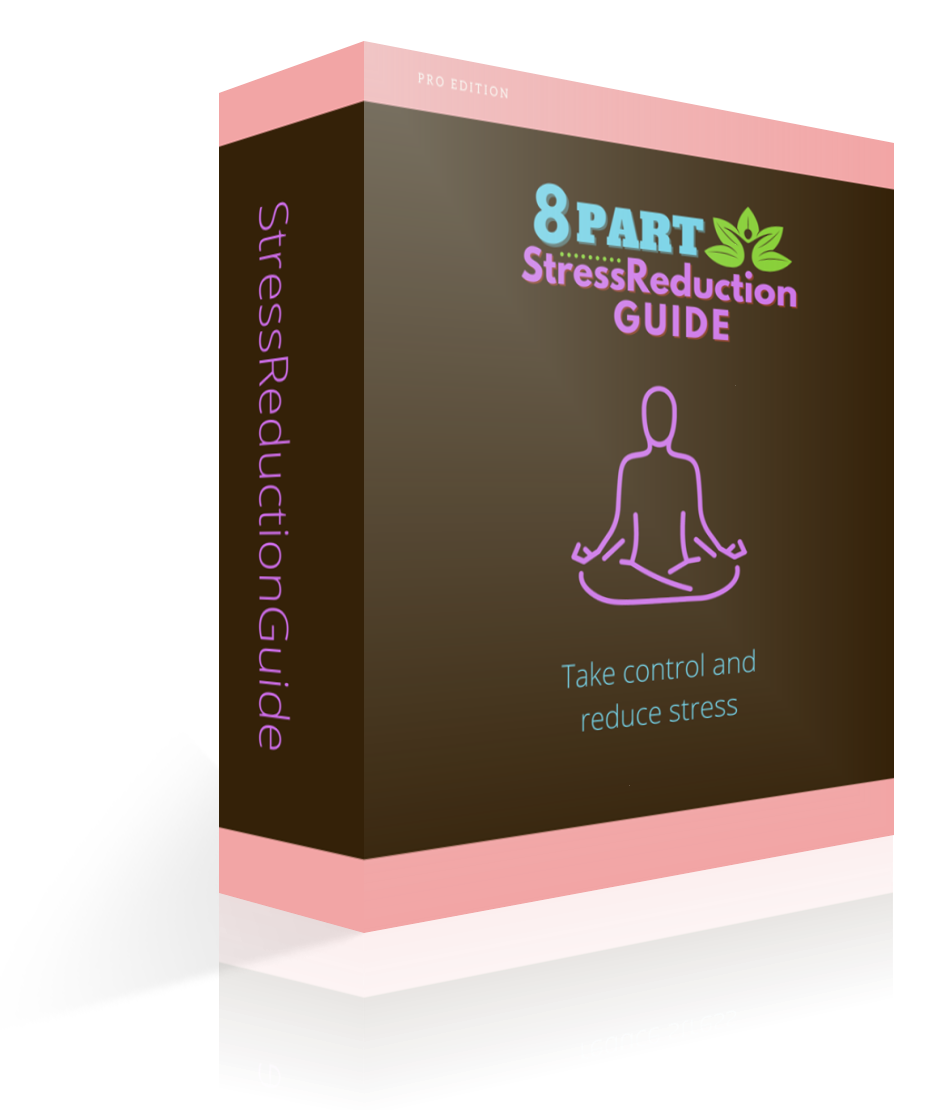Have you ever wondered how you can better manage stress, improve your focus, and enhance your overall well-being while navigating the demanding life of a student?

Introduction to Mindfulness Meditation
In the hustle and bustle of student life, it’s easy to feel overwhelmed. Between balancing classes, exams, extracurricular activities, and personal responsibilities, it can sometimes feel like there’s hardly any time to breathe. This is where mindfulness meditation can offer a lifeline. It’s a practice rooted in ancient traditions but is increasingly being backed by modern science as an effective tool for mental clarity and emotional resilience.
What is Mindfulness Meditation?
Mindfulness meditation involves focusing your mind on the present moment, while calmly acknowledging and accepting your feelings, thoughts, and bodily sensations. It’s about creating a state of awareness and attention that is free from judgment. This practice not only encourages a deep sense of presence but also helps in mitigating the constant worry about future events or regrets about the past.
Why Mindfulness Matters for Current Students
Academic life is fraught with challenges. From the pressure of maintaining grades to social dynamics and future career concerns, students have much to juggle. Mindfulness meditation offers several benefits tailored to these unique stressors. By grounding yourself in the present moment, you can develop a clearer, more focused mind that can better handle the multifaceted demands placed upon you.
The Science Behind Mindfulness
Studies have shown that regular mindfulness practice can lead to significant improvements in mental health, cognitive function, and overall well-being. Here’s a closer look at some of the science-backed benefits of mindfulness meditation:
Stress Reduction
Mindfulness meditation has been found to reduce the symptoms of stress. When you engage in mindful breathing or seated meditation, your body’s relaxation response is activated, reducing cortisol levels and helping you manage stress more effectively.
Enhanced Focus and Concentration
Practicing mindfulness increases the density of gray matter in brain regions connected to learning and memory, emotional regulation, and self-referential processing. This neuroplasticity supports better focus, academic performance, and more effective studying.
Improved Emotional Regulation
Emotions can run high during student life. Mindfulness has been shown to help regulate emotions, reduce mood swings, and foster a more balanced emotional state. This stability can be fundamentally important when dealing with setbacks or high-pressure situations.
Better Sleep Quality
Many students struggle with sleep issues. Mindfulness meditation can improve sleep patterns by helping you fall asleep faster and enjoy a more restful sleep. This is crucial for maintaining energy levels and overall health.
Table: Key Benefits of Mindfulness Meditation
| Benefit | Description |
|---|---|
| Stress Reduction | Lowers cortisol levels and activates the body’s relaxation response. |
| Enhanced Focus | Increases gray matter in brain regions associated with learning and memory. |
| Improved Emotional Regulation | Helps manage emotions and reduces mood swings. |
| Better Sleep Quality | Aids in faster, more restful sleep for better energy levels. |
Getting Started with Mindfulness Meditation
Mindfulness meditation is accessible to anyone and doesn’t require special equipment. All you need is a quiet space and a few minutes of your time. Here are some steps to get you started:
Find a Comfortable Position
Whether you choose to sit on a chair, cushion, or lie down, make sure you’re comfortable but remain alert. The key is to find a position that you can maintain without discomfort.
Set a Time Limit
If you’re new to mindfulness, it might be helpful to start with short sessions. Five to ten minutes is a good starting point. As you become more comfortable with the practice, you can gradually increase the duration.
Focus on Your Breath
A common approach to mindfulness meditation is to focus on your breathing. Pay attention to the sensation of air moving in and out of your nostrils, the rise and fall of your chest, or the sound of your breath. This focus helps anchor your mind in the present moment.
Observe Your Thoughts
With mindfulness, the goal isn’t to clear your mind or suppress thoughts. Instead, observe your thoughts as they come and go without judgment. If your mind starts to wander, gently bring it back to your breath.
Be Kind to Yourself
Mindfulness is a practice, not a perfection. It’s normal for your mind to wander. Each time it does, gently guide it back to your point of focus without self-criticism. Over time, you’ll find it easier to maintain your attention.
Integrating Mindfulness into Your Daily Routine
Incorporating mindfulness into your daily life doesn’t mean you need to carve out large chunks of time. Here are some practical ways to integrate mindfulness into your student life:
Mindful Morning Routine
Start your day with a few minutes of mindfulness. Sit quietly and focus on your breath before diving into your daily activities. This can set a calming tone for the day ahead.
Mindful Study Sessions
Before studying, take a few minutes to settle your mind. This can enhance your concentration and retention of information. Additionally, taking brief mindful breaks during study sessions can help rejuvenate your focus.
Mindful Meals
Instead of eating while distracted, take time to focus on the textures, tastes, and sensations of your food. This not only improves your eating experience but also aids digestion and helps you listen to your body’s hunger cues.
Mindful Walks
Walking is a great opportunity to practice mindfulness. Pay attention to the sensation of your feet hitting the ground, the rhythm of your breath, and the sights and sounds around you.
Mindful Evenings
End your day by reflecting on your experiences without judgment. Engage in mindful stretching or breathing exercises to release the day’s stress and prepare for a restful night.
Addressing Common Concerns and Misconceptions
Many people have preconceived notions about mindfulness meditation that can act as barriers to starting or maintaining the practice. Let’s address some of these common concerns:
“I Don’t Have Time”
Even short periods of mindfulness can be beneficial. Starting with just five minutes a day can make a significant difference. You can incorporate mindfulness into your daily activities, like brushing your teeth or commuting.
“I Can’t Clear My Mind”
The goal of mindfulness isn’t to have a blank mind. It’s normal to have thoughts arise during meditation. The practice involves observing these thoughts without attachment and gently returning your focus to your breath.
“I’m Not Doing It Right”
There’s no one “right” way to practice mindfulness. It’s a personal journey that looks different for everyone. The critical aspect is to approach the practice with openness and kindness towards yourself.
“It Won’t Make a Difference for Me”
Scientific studies and personal testimonials show that mindfulness can benefit everyone, regardless of their background or current state of mental health. Like any skill, it requires regular practice to see the best results.
Community and Resources at Saint Michael’s College
At Saint Michael’s College, there are several resources and communal opportunities to support your mindfulness practice. Engaging with these can provide structure, community, and guidance:
Mindfulness Meditation Series
You can join mindfulness meditation sessions held every Monday and Thursday from 12:15 pm to 12:45 pm in the Meditation Room on the third floor of the Dion Family Student Center. These sessions are open to all students and do not require prior meditation experience.
Wellness Wednesdays
Participate in Wellness Wednesday events to learn more about various wellness practices, including mindfulness. These events can help you integrate different aspects of well-being into your daily life.
Yoga in the Commons
Joining yoga sessions can complement your mindfulness practice by incorporating mindful movement and breathwork. Yoga sessions are typically held in the commons on Thursdays.
Contact and Scheduling Updates
For more information or any questions, you can email the organizer, Human Resources, at ksmith8@smcvt.edu. This contact can also add you to a distribution list for schedule updates so you won’t miss out on sessions that fit your schedule.

Table: Mindfulness Events at Saint Michael’s College
| Event | Time & Date | Venue |
|---|---|---|
| Mindfulness Meditation | Mondays & Thursdays, 12:15 pm – 12:45 pm | Dion Family Student Center, 3rd Floor |
| Wellness Wednesdays | Wednesdays, 8:30 pm – 9:30 pm | Schoolwide |
| Yoga in the Commons | Thursdays, 5:00 pm – 6:15 pm | School Commons |
Conclusion
The journey of mindfulness meditation is a deeply personal one, yet it can profoundly affect various aspects of student life. As you navigate your academic journey at Saint Michael’s College, consider how integrating mindfulness into your routine can help mitigate stress, improve focus, and foster a sense of well-being. Remember, the essence of mindfulness is about being present and treating yourself with kindness—every step of the way.
Mindfulness meditation offers a unique blend of ancient practice and modern application to support your mental health and academic success. You don’t need to be perfect at it; you simply need to begin. Each moment spent in mindfulness can bring you closer to a more balanced and peaceful state of mind, enriching your student experience and beyond.





